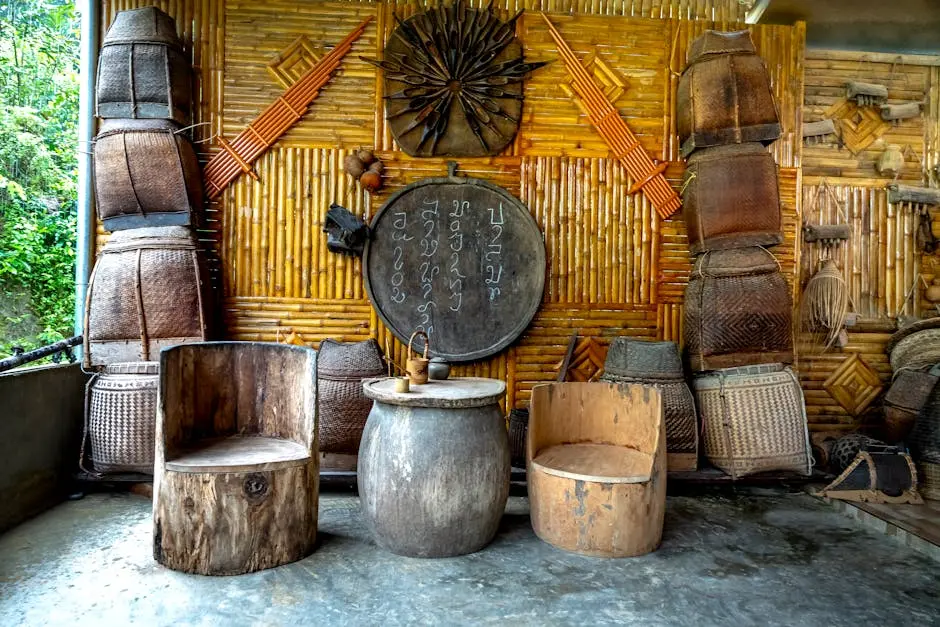If you’re thinking about redesigning your home and want to make a positive impact on the environment, bamboo wood might just be the perfect choice for you. This sustainable material not only looks great but also offers numerous benefits that can enhance your living space. Discover the compelling reasons why bamboo wood stands out as an eco-friendly option for your interiors.
1. Sustainable Growth and Harvesting
Bamboo grows exceptionally fast, reaching maturity in as little as three to five years. This rapid growth rate makes it an incredibly renewable resource. Unlike traditional hardwood trees, which can take several decades to regrow, bamboo can be harvested without killing the plant. This means that every time we select bamboo wood for our interiors, we’re making a choice that supports a sustainable future.
Moreover, the harvesting process for bamboo is quite unique. Technicians can cut the stalks while leaving the root system intact, allowing new shoots to emerge unharmed. This sustainable harvesting not only protects the ecosystem but also ensures continuous bamboo production. The result is a material that’s abundant without compromising our environment.
2. Durability That Lasts
Contrary to popular belief, bamboo wood is not just a soft grass; it is incredibly strong and durable. In fact, bamboo has been tested to outperform many traditional hardwoods, such as oak, in terms of tensile strength. This durability means that you can invest in bamboo wood furniture and flooring, confident that it will endure everyday wear and tear while maintaining its beautiful appearance.
With its natural hardness and resistance to scuffs, bamboo wood is an ideal choice for households that value longevity and sustainability. Whether it’s kitchen cabinets or living room furniture, bamboo stands up to the rigors of daily life without losing its charm. Opting for such a robust material ensures that you aren’t just furnishing your home; you’re making a sound investment that pays off in the long run.
3. Natural Pest Resistance
One of the surprising benefits of bamboo is its natural resistance to pests and insects. Bamboo contains a natural bio-agent known as bamboo kun, which helps protect it from invasive pests that typically damage wood. This invaluable quality means that fewer pesticides are required during its cultivation, contributing to a healthier environment.
By opting for bamboo wood, not only are you choosing a product that’s kind to the Earth, but you’re also enjoying peace of mind knowing that your interior materials are less likely to harbor harmful chemicals. This pest resistance sets bamboo apart from many conventional hardwood options that require toxic treatments. In the push towards greener living, bamboo emerges as a clear winner.
4. Carbon Footprint Reduction
Using bamboo wood can significantly lower your carbon footprint. The process of bamboo cultivation promotes carbon sequestration—an essential mechanism that absorbs carbon dioxide from the atmosphere. In fact, bamboo can absorb up to 35% more carbon dioxide than some tree species, making it a super plant for combating climate change.
This remarkable ability to sequester carbon makes bamboo a powerful ally in the fight against global warming. By integrating bamboo wood into your interiors, you’re actively participating in reducing greenhouse gas emissions. You’re not just choosing furniture; you’re selecting a material that thrives in harmony with nature and helps restore ecological balance.
5. Versatile Aesthetic Appeal
Bamboo wood is often celebrated for its stunning aesthetic appeal, offering a blend of elegance and modernity that can enhance any interior. Its unique textures and colors range from light beige to rich caramel shades, allowing homeowners to find the perfect fit for their design preferences. No matter your style, bamboo can seamlessly complement both contemporary and traditional spaces.
Beyond aesthetics, the versatility of bamboo extends into various applications—from luxurious flooring to chic cabinetry. Its adaptability means you can easily incorporate bamboo into different design elements. By choosing bamboo wood, you not only beautify your space but also embrace a design choice that’s both classy and environmentally responsible.
6. Low VOC Emissions
Many bamboo products are crafted using environmentally conscious practices that result in lower volatile organic compound (VOC) emissions. These compounds can contribute to air pollution and various health issues, typically found in conventional wood processing. Consequently, selecting bamboo wood helps create a healthier living atmosphere for you and your family.
By ensuring that your furnishings emit fewer harmful chemicals, you’re making a responsible choice for your home. This commitment to low VOC emissions aligns perfectly with a growing awareness of indoor air quality and its impact on health. When you choose bamboo wood, you’re not only creating a stylish space but also fostering a safe and welcoming environment.
7. Supports Sustainable Economies
By opting for bamboo wood, you actively support communities engaged in sustainable forestry practices. Many bamboo plantations are located in developing regions where local populations depend on these resources for their livelihoods. Your choice to incorporate bamboo wood into your home can have a profound impact by promoting ethical sourcing and fair trade.
In turn, this encourages these communities to maintain their natural resources while preserving their unique ecosystems. When you purchase bamboo materials, you’re not just making a design statement; you’re uplifting economies and contributing to the broader goal of sustainability in the global market.




